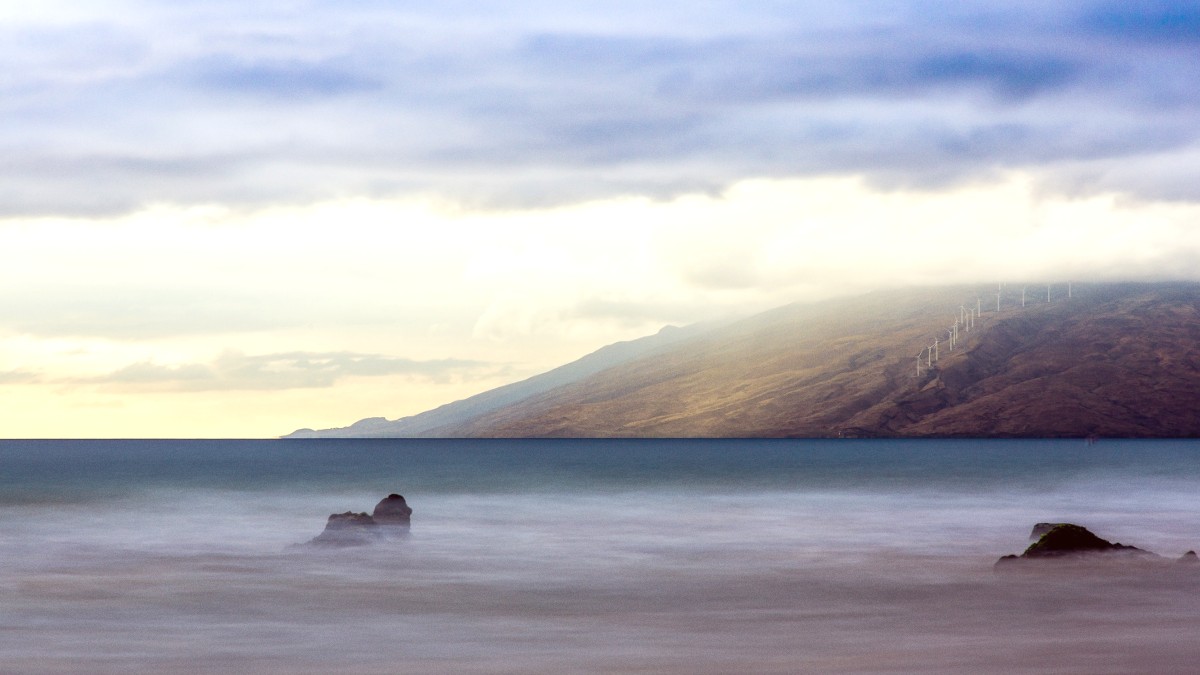
Hawaii, USA
April to October generally mark the driest months. November to March experience more rain, often brief and localized. East Maui and higher elevations receive increased rainfall. Humidity levels remain moderate to high, typically between 65-80% all year.
Ocean waters are consistently warm, usually 75°F to 80°F (24°C to 27°C). Higher elevations, like Haleakalā, are much cooler, with temperatures dropping to freezing.
December to May offers prime whale viewing. January through March marks the peak whale watching period. Winter months (November-March) bring larger waves to the North Shore for surfing, while summer months (May-September) suit South Shore waves.
Hiking is possible year-round. Drier months (April-October) are better for windward side trails or higher elevations, as paths are less muddy. Beaches are enjoyable throughout the year, with calmer waters varying by season.
High season
Peak whale watching, atmosphere.
Highest prices, largest crowds.
Balance
Good weather, fewer crowds, better value.
Some rain possible in late fall, fewer whale sightings.
High season
Warmest weather, ideal for beaches and water activities.
Higher prices, many families travel.
The shoulder season (April-May, September-mid-December) typically offers a good balance of weather and value.
Late January/early February and late April/early May might see fewer crowds. The late fall, after Thanksgiving but before mid-December, is also less busy. This period presents opportunities for better prices and fewer people.
Tropical, consistent temperatures.
More in winter, brief showers.
Moderate to high year-round.
Warm, 75°F to 80°F (24°C to 27°C).
January-March.
Maui belongs to the United States. Standard U.S. Entry requirements apply for all visitors.
U.S. Citizens require no visa; a valid government-issued ID (driver's license or passport) suffices for air travel from the mainland.
Your passport must be valid for at least six months beyond your planned departure date. Specific passport-style photographs are necessary for visa applications.
Prices fluctuate by season and specific choices.
| Travel Style | Accommodation (per night) | Total Daily Cost |
|---|---|---|
| Budget Traveler | $100 - $200 | $210 - $400+ |
| Mid-range Traveler | $250 - $500 | $450 - $900+ |
| Luxury Traveler | $600 - $1500+ | $1000 - $2500+ |
Maui maintains excellent healthcare facilities. Awareness of local conditions is valuable.
Sunburn and heatstroke are risks due to Maui's high UV index. Use broad-spectrum Reef Safe Sunscreen SPF 30+. Wear hats, like a Wide Brim Sun Hat, and Sunglasses. Seek shade during peak sun hours (10 AM - 4 PM). Dehydration is a risk, particularly when hiking. Drink plenty of water and carry a Reusable Water Bottle.
Leptospirosis, a bacterial disease, occurs in fresh water. Avoid swimming or wading in freshwater streams or muddy areas if open cuts exist. Box jellyfish may appear on south-facing shores 8-10 days after a full moon. Look for warning signs.
Maui has good healthcare facilities. Maui Memorial Medical Center in Kahului is the island's main hospital. Urgent care clinics are in Kihei, Kahului, and Lahaina (check status post-wildfire).
Urgent care centers handle non-life-threatening conditions effectively.
Avoid freshwater streams if you have open cuts to prevent Leptospirosis.
Violent crime rates are low. Property crime is more common, especially theft from vehicles. Rental cars are often targeted at tourist spots.
Do not leave valuables visible in parked cars. Lock doors and windows.
Wildfires are a risk, especially in dry areas. Use extreme caution with heat sources.
Hawaii is prone to tsunamis. Follow official alerts (sirens, local radio/TV). Evacuate to higher ground if advised. Haleakalā volcano is dormant but no immediate eruption risk exists.
Travel insurance is highly recommended for medical emergencies and trip interruptions.
Emergency Services (Police, Fire, Ambulance): Dial 911 (universal U.S. Emergency number).
| Service | Contact | Notes |
|---|---|---|
| Emergency Services | 911 | Police, Fire, Ambulance |
| Maui Memorial Medical Center | (808) 244-9056 | Main Hospital (Kahului) |
| Poison Control | 1-800-222-1222 | National hotline |